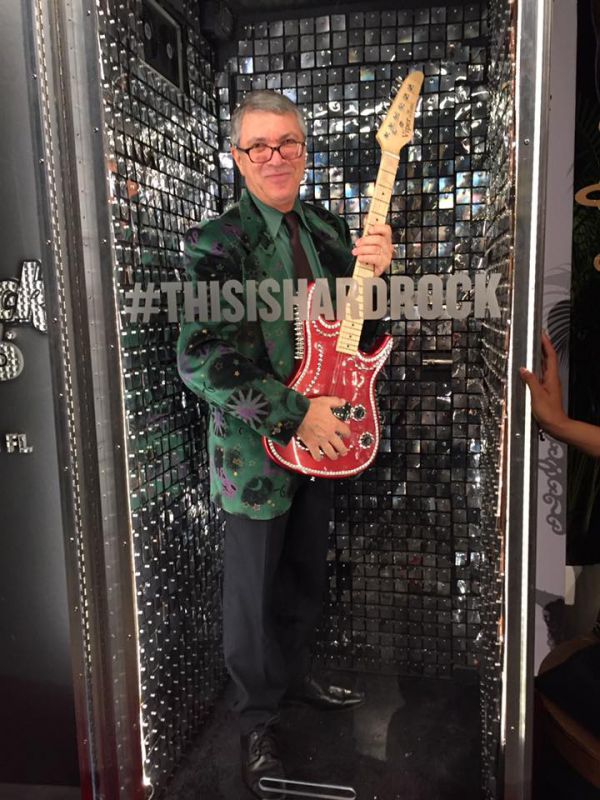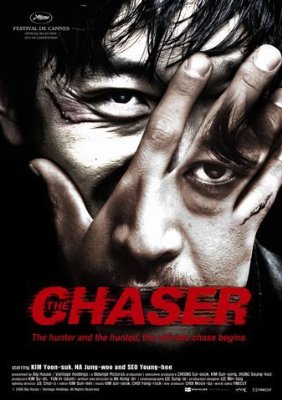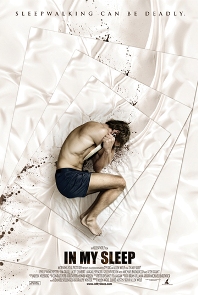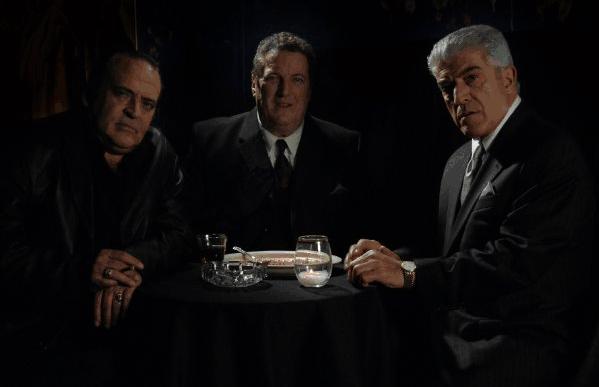|
|
||
|
Pro Tools
FILMFESTIVALS | 24/7 world wide coverageWelcome ! Enjoy the best of both worlds: Film & Festival News, exploring the best of the film festivals community. Launched in 1995, relentlessly connecting films to festivals, documenting and promoting festivals worldwide. Working on an upgrade soon. For collaboration, editorial contributions, or publicity, please send us an email here. User login |
Interview With Mel StuartSunday, November 12--- Mel Stuart, the veteran director, was honored on Saturday evening at the FLIFF Uncorked! Awards Gala with a Lifetime Achievement Award for his five decades as a pioneering director/producer. Stuart was a trend-setter, who effortlessly moved between the worlds of big-budget Hollywood and independent documentaries in a career move that has been emulated by such contemporary filmmakers as Martin Scorsese, Jonathan Demme and Steven Soderbergh. In a long and distinguished career, Stuart has been nominated for the Academy Award, won several Emmys, with a resume that includes a staggering 150+ films in his extensive resume. Online Festival Dailies Editor Sandy Mandelberger sat down with the veteran director for an engaging and illuminating interview. Sandy Mandelberger (SM): Tell us how you first got started in this business. Mel Stuart (MS): I originally wanted to be a music composer, and one day I heard Stravinsky conducting one of his symphonies at Carnegie Hall, and I realized that I was not hearing what he was hearing, so I stopped my musical career right then and there. I firmly believe that if you don’t think you can be the best in any field, then you should not attempt it and find the area where you can really excel. In the 1950s in New York City, I drifted into the world of film and early television, which was expanding in those years. By luck, I found a job carrying light stands on a commercial for a man whose wife was a maker of avant-garde films, and my first job in this business was as an assistant editor, cutting avant-garde films. I became fascinated with editing, which I still think is the basis of filmmaking. SM: What was your first big break? MS: I drifted around the film and television industry in New York at that time, and it wasn’t easy. In between those jobs, I took other ones…I remember working for a stretch at a factory that made plastic ducks. But I got my big break when I was hired by Walter Cronkite’s company, Twentieth Century Film, which was producing the historical television series TWENTIETH CENTURY, which looked at the major personalities and trends of the century through archival footage. I became a researcher and worked on many of the important programs of that series. At that time, I met a producer named David Wolper, who brought me out to Los Angeles, and until 1977, we worked together to create documentary feature films for television, (including the Oscar nominated FOUR DAYS IN NOVEMBER, chronicling the assasination of President Kennedy). When we were working on one film where the original director dropped out, I said that I wanted to try my hand at directing, and from then on, I became a director. SM: In reviewing your career accomplishments, one of the things that you pioneered was being both a director of fiction features and documentaries, doing this in the early 1970s. How did your career as a documentarian lead you to make some of these Hollywood features? MS: I’ve been very lucky, and have been able to work in a lot of different genres over my career….documentaries, fiction features, comedies, even a musical. I’ve managed to jump back and forth all my life. How I was able to do this had to with luck. In the late 1960s, I read an article in the New Yorker Magazine entitled IF IT'S TUESDAY, IT MUST BE BELGIUM, which was a satire on groups of Americans traveling to the European continent. A short documentary film was made with that title, and then producer David Wolper successfully sold a feature version of the film, which became my first fiction feature that I directed (in 1970). Because I had made so many documentaries, where there is no script and where you have to know what you’re doing, the studio trusted me as a first time director with a feature film. I knew about producing, shooting and editing, the one thing I needed to learn was how to work with actors, but that came naturally to me. SM: During that period, you made what is probably your best known film, WILLY WONKA AND THE CHOCOLATE FACTORY, which is a beloved classic. How did that film come about for you? MS: It was my idea. My daughter came to me and she had just read the original Raoul Dahl story. I had already made two features so the studios could see that I could handle a bigger production. David Wolper was able to sell the idea to a studio with the participation of Quaker Oats, which was going to produce a chocolate bar and were ready to finance the movie to promote this new product. Well, in the end, that never happened, and the film rights were sold to Warner Brothers. I worked really hard on that film to make it appeal not only to children but to adults. However, when the film first came out, it was not a big success, but only found its audience later when it was sold to television and was one of the first films sold to cable tv and also became available on video, when the video rental industry was just starting to happen. So, this was one of the first films that made more money after its initial release because of these new formats. SM: The subject of many of your documentary films are about the film industry itself, with such films as LIFE GOES TO THE MOVIES, and portraits of Sophia Loren, Cary Grant, Billy Wilder and others. Now there are a lot of films on this subject, but back when you made them, it was still fresh. Tell us about that. MS: When I first made these films (in the 1970s), the subject was still fresh, which is what attracted me to it in the first place. This was a time when people were first understanding how American films reflected American culture, which was an interesting subject to me. But I wouldn’t want to do this kind of thing today. The kind of celebrity biographies done now are so unimaginative and repetitive. I worked in a different style….not using a lot of talking heads to say why a person was important or influential, but let the subjects speak for themselves. That is the only way that interests me. SM: How has the business changed from when you first began 50 years ago? MS: Well, in one way, there is a lot more work, since there are all these cable networks that need documentaries. But the major difference is that in my day, once the network signed off on a project, they left you alone and you could work in almost total freedom. Now, there is a lot of intrusion by people who are not filmmakers. The unfortunate thing is that they meddle to a point that can make you crazy. Today, the network comes with notes and pencils and twenty year old kids who graduate from USC and they want to tell you how to do it, and it makes you bonkers. The other thing is that because there are so many channels now, no one channel has high ratings, so the amount of money they are willing to pay for films is also lowered. It is really hard to do something of quality on those kind of budgets. The documentaries that we did in the early days were seen by so many more people at one time, because they were on a major network. The landscape has totally changed. But one good thing, is that there is a bigger audience for documentaries being shown in a movie theater than there ever has been. SM: Here at the Fort Lauderdale Film Festival, there are many films from first-time or starting filmmakers. What advice would you give to young people based on your experiences over the last 50 years of working in this business? MS: I do a two hour lecture on this, but I will give you the short version: the five things you need to be a success in this business. #1: You must know that you have the talent. A lot of people get caught up in the glamour side of it, wanting to be famous. But to really make it, it requires a lot of tedious work and a commitment to working hard. You have to be honest with yourself….if you’re a good plumber, go out and be a plumber. #2: Luck. It’s so important to be lucky, which is something you can’t really control. I’ve always been lucky….there has always been a job waiting for me. #3: Have a mentor, someone who has the power to get a picture sold and can open up doors for you. I had that with David Wolper and several others who gave me that chance. #4: To be able to work the room, something that I don’t do as well as I could. If you know how to be able to schmooze, you can make things happen. I brought out William Friedkin to Hollywood. He was a master at working the room, and six months after he arrived, he had a movie deal. #5: Power is at the point of an idea. If you want to be a producer, get Brittany Spears to agree to be in your movie, and you will get that movie made. If you own the idea, you jump over everybody like a knight in chess. Ideas are powerful. 12.11.2006 | Fort Lauderdale International Film Festival's blog Cat. : Ambiance American film directors Billy Wilder Brittany Spears Cary Grant David L. Wolper David Wolper David Wolper Emmys Entertainment Entertainment finance Fort Lauderdale International Film Festival Human Interest Human Interest Jonathan Demme LIFE GOES TO THE MOVIES, and Los Angeles Martin Scorsese Mel Stuart Mel Stuart New York New York City Online Festival Dailies Quaker Oats Raoul Dahl Sandy Mandelberger Sophia Loren Steven Soderbergh the Academy Award the FLIFF Uncorked! Awards the Fort Lauderdale Film Festival The New Yorker Magazine the Oscar Walter Cronkite William Friedkin WILLIE WONKA AND THE CHOCOLAT WILLY WONKA AND THE CHOCOLATE FACTORY FILM FESTIVALS AWARDS PEOPLE
|
LinksThe Bulletin Board > The Bulletin Board Blog Following News Interview with EFM (Berlin) Director
Interview with IFTA Chairman (AFM)
Interview with Cannes Marche du Film Director
Filmfestivals.com dailies live coverage from > Live from India
Useful links for the indies: > Big files transfer
+ SUBSCRIBE to the weekly Newsletter Deals+ Special offers and discounts from filmfestivals.com Selected fun offers
> Bonus Casino
User imagesAbout Fort Lauderdale International Film Festival Mandelberger Sandy Mandelberger Sandy (International Media Resources)
Online Dailies for the 24th edition of the Fort Lauderdale International Film Festival , October 23 - November 11, 2009 View my profile Send me a message The EditorUser contributions |


































Comments (1)
Yes
I think that this article is right....if you are good at something go and do it ..like a plumber ..if you are good at that then do it..bathroom plumbing